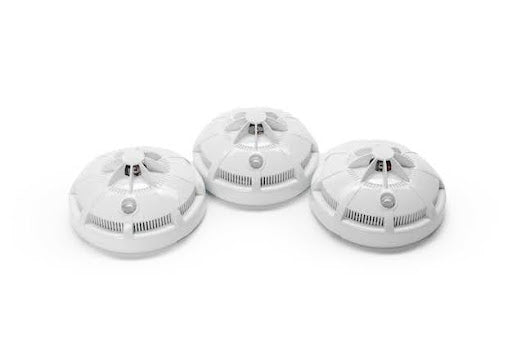Breathe easier and save more; your HVAC system might be missing a key upgrade. A CO2 sensor can make all the difference.
By tracking indoor carbon dioxide levels, CO2 sensors help optimize air quality, boost energy efficiency, and maintain a healthier environment. Here's why adding one to your HVAC system is a smart move.
What is a CO2 Sensor in HVAC?
A CO2 sensor in an HVAC system is a device that measures the concentration of carbon dioxide in the air. It helps monitor indoor air quality by detecting how much CO2 is present in a space. When CO2 levels rise, the sensor sends a signal to the HVAC system to bring in more fresh air or adjust ventilation settings. This ensures that the air stays healthy and comfortable for occupants, especially in spaces with limited airflow or high occupancy.
Importance of CO2 Sensor in HVAC
Beyond the clear benefits to air quality and energy efficiency, CO2 sensors play a strategic role in how HVAC systems operate and adapt to different environments. They are essential for smarter ventilation management and long-term building performance. Here are three key reasons why CO2 sensors hold such importance:
-
Data-driven ventilation control
CO2 sensors provide real-time insights into occupancy and air quality, allowing HVAC systems to adjust ventilation rates based on actual indoor conditions rather than fixed schedules or estimates. -
Early detection of ventilation issues
A sudden spike or consistently high CO2 level can indicate a malfunction in the HVAC system or blocked airflow. The sensor acts as an early warning system, helping identify issues before they escalate. -
Supports smart building automation
In modern, connected buildings, CO2 sensors integrate with smart systems to create responsive environments. They allow HVAC operations to be fine-tuned automatically, improving performance across the entire building.
Benefits and Reasons Why You Need a CO2 Sensor in an HVAC System
A CO2 sensor is more than just a smart add-on for your HVAC system. It plays a crucial role in maintaining indoor air quality, optimizing energy use, and improving the overall performance of your ventilation setup. Below are the top reasons why installing a CO2 sensor can make a big impact on your space.
Improves indoor air quality
A CO2 sensor ensures that carbon dioxide levels do not rise to unhealthy concentrations. When CO2 builds up, it can cause fatigue, headaches, and poor focus. By detecting elevated levels, the sensor triggers the HVAC system to bring in more fresh air, maintaining a healthier and more comfortable environment.
Supports energy efficiency
Instead of running ventilation constantly, a CO2 sensor allows the HVAC system to adjust based on actual needs. This demand-controlled ventilation reduces unnecessary energy use and lowers utility bills while still keeping air quality in check.
Enhances occupant comfort
High CO2 levels can make indoor spaces feel stuffy or stale. With a sensor in place, the system maintains balanced airflow, ensuring fresh air circulation that keeps people feeling more alert and comfortable throughout the day.
Promotes health and well-being
Excess CO2 can be a sign of poor ventilation, which may also mean a buildup of other indoor pollutants. By monitoring CO2, the system indirectly helps reduce exposure to allergens, volatile organic compounds, and airborne contaminants that can affect respiratory health.
Ideal for high-traffic or enclosed spaces
In areas like classrooms, offices, or conference rooms where people gather for extended periods, CO2 levels can rise quickly. A sensor helps the HVAC system respond in real time, preventing air quality from dropping during peak usage.
Extends HVAC system life
Efficient airflow management reduces strain on the system. Instead of running constantly, the HVAC only works harder when needed, which can lead to less wear and tear and longer equipment life.
Ensures regulatory compliance
Many building codes and certifications, such as LEED or WELL standards, emphasize indoor air quality. Using a CO2 sensor can help meet those requirements and demonstrate a commitment to creating a safe, energy-smart building.
Offers real-time data and control
Modern CO2 sensors often come with digital displays or integration options for building management systems. This gives facility managers or homeowners instant feedback and the ability to adjust HVAC settings based on real-time air quality data.
Find the Right CO2 Detector for Your HVAC System
Incorporating a CO2 sensor into your HVAC system is a simple yet powerful way to improve indoor air quality, enhance system performance, and promote energy efficiency.
Whether you're managing a commercial space or optimizing home comfort, monitoring CO2 levels ensures healthier, more breathable air for everyone. Ready to make the upgrade? Explore Voomi Supply's collection of CO2 detectors to find the right solution for your HVAC needs.


